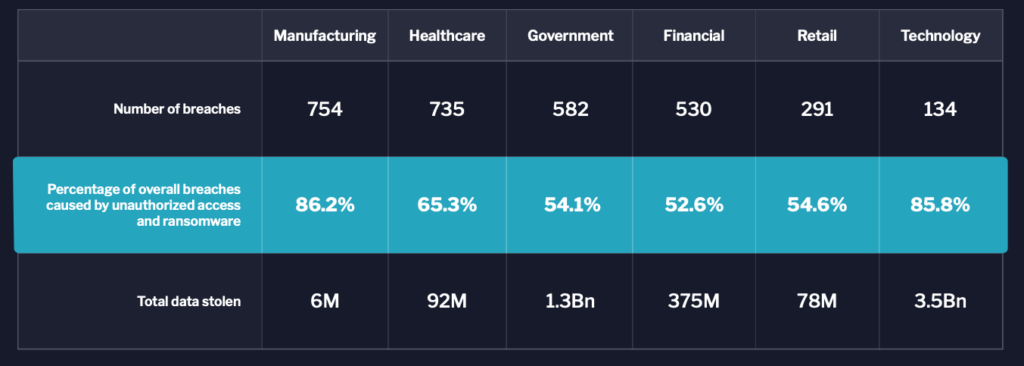
2024-5-2 04:5:1 Author: flashpoint.io(查看原文) 阅读量:9 收藏
Understanding the evolving threat landscape is crucial as we step into 2024, a year already marked by significant increases in ransomware attacks, data breaches, and geopolitical tensions, such as the Israel-Iran conflict. Last week, Flashpoint’s Ian Gray and Brian Martin provided their insights into the cyber threats of 2024 and the previous year, while also giving viewers a playbook on how to anticipate and defend against them.
Here’s what you need to know.
Data breaches are on the rise
“Flashpoint saw a significant uptick in the frequency of security breaches. This rise is indicative of broader trends showing that breaches are becoming more commonplace among organizations.”
Ian Gray, VP of Intelligence at Flashpoint
Unauthorized access remains the leading cause of publicly disclosed data breaches, highlighting significant lapses in access controls and identity management within organizations. This indicates a systemic issue where organizations fail to adequately implement security controls and monitor sensitive data, resulting in substantial financial and reputational damage.

Our analysts have observed significant upticks in data breach activity since the release of the 2024 Flashpoint Global Threat Intelligence Report—tracking 587 and 521 publicly disclosed data breaches reported in March and April respectively.
How compromises contribute to ransomware
Looking back to 2023, over 6,077 data breaches were recorded. Of those, unauthorized access and ransomware accounted for more than 85% of those incidents. Ransomware specifically was responsible for more than half of all data breaches experienced by major sectors:

2024 has been seeing a disturbing rise in ransomware incidents, with threat actors increasingly targeting critical infrastructure sectors. These attacks are not only disrupting services, but also serve as a conduit for more extensive breaches, compounding the challenges organizations face.
Rise in vulnerability disclosures with less information

Vulnerabilities continue to be a growing component of the threat landscape that organizations must navigate. March’s alarming aggregation of 3,416 vulnerabilities, with 38% having public exploits, was closely followed by the identification of 2,128 vulnerabilities in April—security teams will need to ensure they are prioritizing effectively in order to manage potential risk.
Navigating the NVD slowdown
However, organizations may find that they are missing much needed contextual information and metadata. In the webinar, Brian Martin broke down how NVD’s ongoing slowdown adversely affects organizations that are severely dependent on CVE and NVD data for vulnerability management. Flashpoint’s independent tracking ensures that organizations have access to comprehensive vulnerability coverage—capturing essential data that might otherwise be missed.
Learn and defend against threats using Flashpoint
Staying ahead of today’s threats requires access to comprehensive, timely, and actionable intelligence. Watch the on-demand recording to learn exactly how organizations can navigate the complexities of the threat landscape and what steps security teams can take to anticipate and adapt to cyber threats.
如有侵权请联系:admin#unsafe.sh